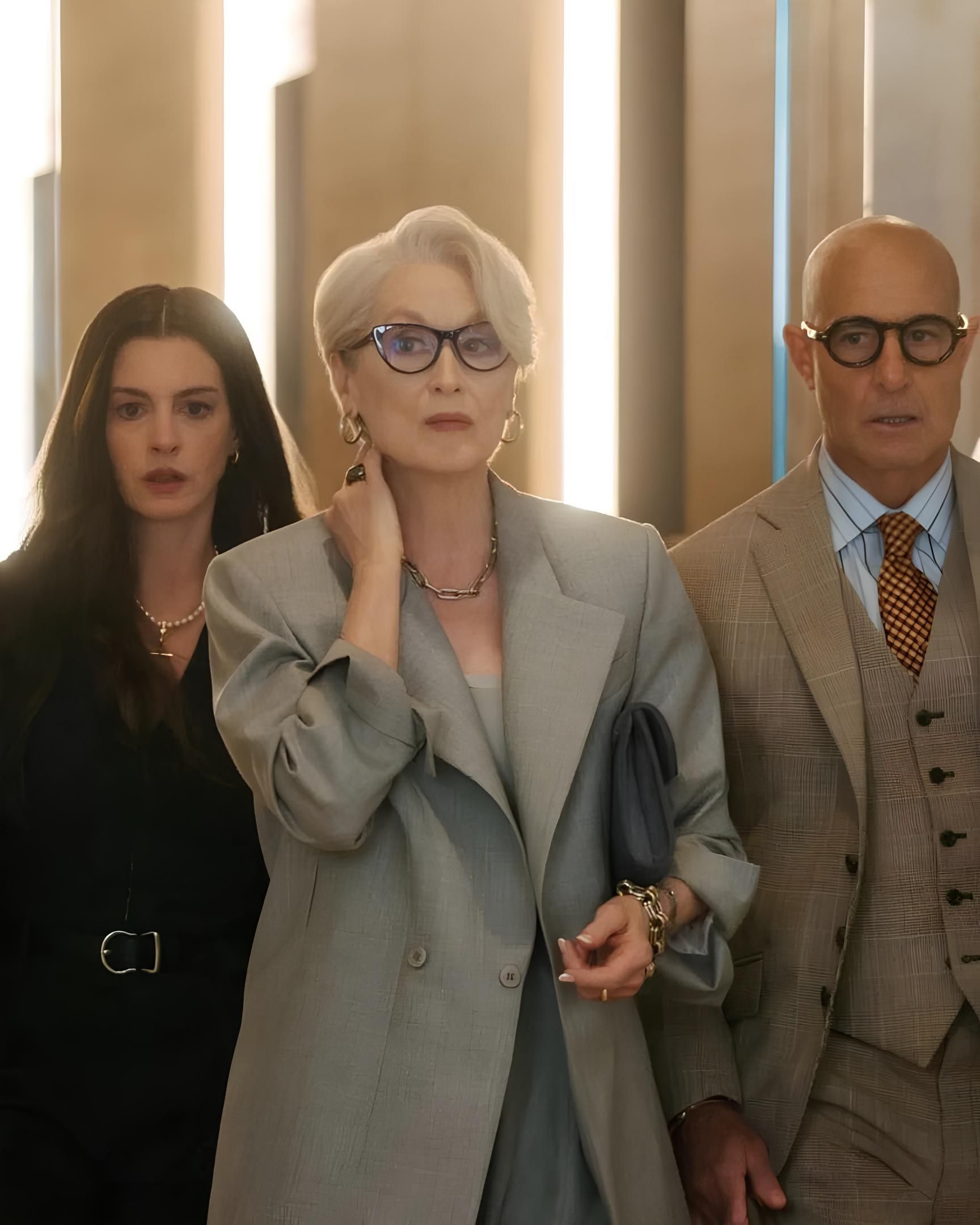
Sex is disappearing from cinemas And the Oscars know something about it
Questioning whether Hollywood is afraid of sex is legitimate. Variety asked the same question right after the Oscar nominations, which completely snubbed some of the films considered among the “sexiest” of the year. For months, audiences and social media have shared images, photos, and sequences from works like Challengers, not to mention the promotional campaign for the film about the protagonist’s sexual (re)discovery – along with her kinks – in Babygirl, directed by Halina Reijn. Yet, neither Luca Guadagnino’s film nor the work starring Nicole Kidman and Harris Dickinson were considered for Oscar nominations. Surprising absences, to say the least. The tennis and love-triangle film starring Zendaya, Josh O’Connor, and Mike Faist wasn’t even nominated for its modern and captivating production, from editing to sound, not to mention the soundtrack, which had just won a Golden Globe for the artistic duo Trent Reznor and Atticus Ross weeks before the Academy’s decisions. Babygirl, which premiered in U.S. theaters during the Christmas season like a gift under the tree, had a prestigious debut at the Venice Film Festival, where Nicole Kidman won the Volpi Cup, an award given to the festival’s best actors. At the Golden Globes, a more prestigious award went to Fernanda Torres for Io sono ancora qui, an unexpected win.
Every Tashi and Patrick scene in Challengers was hot. The chemistry and tension was off the charts. He infuriated her but she couldn’t resist going back for more https://t.co/9fox73jdUw
— Emi Eleode (@EmiEleode) April 22, 2024
But what has sex done to the Academy? Some might shout about the era of performative decency, the hypocrisy of an industry filled with dark rumors but unwilling to be associated with them—especially post-MeToo. However, it is unlikely that sexuality is still seen as a taboo or that it is deliberately avoided to preserve the morality of the Oscars: after all, Anora is still in the race. Yet, looking at the Academy Awards in 2024, where the big winners were Poor Things by Yorgos Lanthimos, with eleven nominations and four wins, including Best Actress for Emma Stone, and Oppenheimer by Christopher Nolan—the ultimate anti-sex film by the quintessential anti-sex director—it all makes sense. Lanthimos’ film, which had already won the Golden Lion in Venice in 2023, was admired for the universe crafted by the Greek filmmaker, based on Alasdair Gray’s book, where the protagonist’s journey of human and existential discovery was accompanied by a sharp analysis of female sexuality. Through Bella Baxter, Stone’s character explored themes of empathy, emancipation, pleasure, and even labor.
This trend is at odds with a well-known 2024 article from The Economist, which, based on Stephen Follows’ research, demonstrated a dramatic decline in sex scenes in film over the past twenty years. While Bella Baxter’s “furious thrusts” in Poor Things remain ingrained in audiences' memories, the data suggests a 40% decrease in sexual content compared to the previous century. The percentage of films without a single sex scene has risen to 50%, compared to 20% in the past. Despite this, the little that is shown is more explicit and realistic than before, as seen in Anora. The reasons for this shift are many and extend beyond the fear of missing Oscar opportunities.
First of all, there is the long-standing issue of the age restriction and a cinema increasingly geared towards a general audience, a popcorn-and-superheroes formula that would hinder its commercial viability at the mere hint of sexuality. It is true that in 2021, Marvel brought the first sex scene to its universe with the movie Eternals. The protagonists of the scene were Gemma Chan and Richard Madden, playing Sersei and Ikaris, and the duration was less than a minute, strictly under the moonlight to maintain a see/no-see effect (and nothing is actually seen) in the union of the characters. Director Chloe Zhao - also part of the screenplay team - reportedly had to insist on getting approval for the scene, ensuring that it conveyed an authentic relationship between people (albeit eternal ones). Apparently, the green light was given after Marvel and the producers realized that if the two had been together for about seven thousand years, they couldn’t just be holding hands.
FIRST WOMEN TO KISS ON THE MCU AS THEY FUCKING SHOULD!!!!! #AgathaAllAlong pic.twitter.com/J0UB8FcQ7p
— c’arol (@ohmissgill) October 31, 2024
Another issue, closely related to superhero films, is the belief that today there are very few adult films made for adults - and no, we’re not talking about that kind of adult film. It seems as though cinema has settled into a comfortable bed that no longer requires the emotional and participatory involvement of the viewer. Instead, it simply needs to soothe them, tell them everything is fine, and even allow them to check their phone now and then. Perhaps that’s why Stefano Piri, writing for Rivista Studio, identified Hit Man - Killer per caso by Richard Linklater as a film that puts sex back at the center, though not as the main theme of the movie, but as an element that is impossible to eliminate when telling stories about adult characters who, indeed, behave like adults. It’s an ironic and lively film, built around the protagonist of a 2001 article published in Texas Monthly: Linklater’s work establishes a relationship that is improbable in its premise (a woman hires a hitman who is actually an undercover cop who is actually a philosophy professor) but concrete in reality. The protagonists meet, like each other, date, and have exciting and fun sex. They do it frequently, as often happens at the beginning of relationships, with that little touch of frenzy that comes when something forbidden is at play.
@netflix you're welcome for the glen powell content #HitMan original sound - Netflix
There is, however, another aspect that should not be underestimated: the changing times, the evolving society, and the needs of new viewers. In recent years, there has been talk about how young people are having less sex, a claim supported by data: a study by the Italian Society of Andrology, conducted on a sample of 500 young males aged 16 to 35 and their partners, shows that 50% are dissatisfied with their sexual relationships, while one in three engages in sexual activity only virtually. Similarly, the Censis-Bayer report states that 1.6 million people between 18 and 40 do not have sex, with an additional 220,000 individuals in stable relationships but without engaging in intercourse and another 700,000 who currently have no interest in sex. The trend is similar in other countries: in the UK, the average number of sexual encounters has dropped from four to three per month, while in Germany, the number of sexually inactive young people has risen from 7.5% to 20.3%. In the United States, the figure has even doubled. It’s important to consider not only a decrease in sexual appetite but also a new perception of libido, detached from frequency and social pressure, which was often fueled by the portrayal of sex, especially on television. Think of sitcoms like Friends, where almost every episode revolved—broadly speaking—around seeing, dating, or going out with someone, over the course of ten seasons and a total of 236 episodes.
It is, however, primarily society that drives this trend, with factors such as people getting married later (or not at all) and increased access to pornography (which can create unrealistic fantasies that influence consumers), potentially leading to less frequent visits to the bedroom. The Generation Z, however, is also the one that, thanks to progress and the opening up of plural voices and narratives, has developed a new awareness that it applies to sex, basing it on respect and consent, making it a safer and more conscientious activity than ever before. This is evident in cinema and TV series, though exceptions like Euphoria remain hyper-sexualized. In Bridget Jones - Mad About the Boy, the fourth installment of the saga about the most famous British romantic heroine on the big screen, the protagonist is asked by young Roxster, played by ’96-born actor Leo Woodall, if he can kiss her. Renée Zellweger’s character responds: «That’s right, you’re from the generation that asks».
If you consider that sex and violence were the incentives with which New Hollywood got cinema back on track after its territory was threatened by the arrival and growth of television, you can see how today their equivalent, blockbusters (the bait to attract as many viewers as possible), embrace a completely opposite approach. Just think of Twisters by Lee Isaac Chung, centered on storm chasing and the protagonist’s overcoming of trauma, played by Daisy Edgar-Jones. It seems that producer Steven Spielberg was the one who omitted the kiss that the young woman shares in the film with her love interest, played by Glen Powell (who returns here after Hit Man). In this case, should we bring up Hollywood’s hypocritical moralism? No, it’s simply the realization (probably) that often affection in films was essential only for marketing the narratives, whereas today, the focus can be elsewhere. Like the simple success of the protagonist who, good for her, may have also found love, though it is not central to the film’s story.
@nssmagazine “Diva Futura” è il nuovo film di Giulia Louise Steigerwalt presentato alla Mostra del Cinema di Venezia e destinato oggi ad arrivare nelle sale italiane che chiama a raccolta gli attori Pietro Castellitto, Barbara Ronchi, Denise Capezza, Tesa Litvan e Lidija Kordic per raccontare l’incredibile avventura di Riccardo Schicchi, Ilona Staller, Moana Pozzi e di tutta la storia che ha circondato la loro celeberrima agenzia. In occasione del takeover di nss edicola in Piazza Bruno Buozzi, abbiamo intervistato il cast che ci ha dato qualche anticipazione. Vi aspettiamo fino a questa domenica per scoprire la collezione realizzata in occasione del film. E voi andrete a vederlo? #divafutura #movietok #filmtok #milano #milan #nssedicola #cinema #film suono originale - nss magazine
While Hollywood does not like sex, lately Italy has decided to fully embrace it: last year Netflix produced Supersex, which portrayed the figure of porn actor Rocco Siffredi, while now the film about Italy's most important porn film company has been released. Diva Futura by Giulia Louise Steigerwalt is the film named after the agency of the same name founded in 1983 by Riccardo Schicchi and Ilona Staller, which launched some of the most famous red-light stars of Italian society, from Moana Pozzi to Cicciolina. In the meantime, Mrs Playmen, starring Carolina Crescentini, is about to arrive on Netflix. It will tell the story of Adelina Tattilo and her feat in standing up to Playboy with the Italian erotic magazine Playmen. Could the saying «Italians Do It Better» be true, as Madonna dressed in the famous Papa Don't Preach video? As it turns out, it just might be.













































